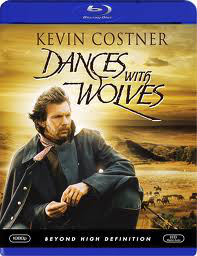John Barry - a very Catholic composer

More than a decade ago, British musician John Barry was watching a Sunday morning TV interview with Pope John Paul II's official photographer, and heard him say that the Pope's favourite piece of music was the soundtrack to the film Dances with Wolves.
"I just went crazy," said Barry, the five-time Oscar winner who had composed it.
Well, I have something in common with the last pope - I love this soundtrack too, particularly the 'harmonica' version. I've listened to it many times on youtube since hearing the news a week ago that Barry had died suddenly at his New York home, aged 77. I've also been finding out more about the man whose music many of us have found so appealing and memorable.
As a Catholic child in wartime York he attended church schools - one being the Bar Convent - which he remembered as being excessively strict but which introduced him to church music and nurtured his musical ability. Indeed, he took piano lessons with the master of music at York Minster.
The link between a love of music and of cinema came with regular visits to local cinemas run by his father, and so committed was he to developing his composition and orchestration skills that he undertook a relevant correspondence course while still doing his national service in Cyprus.
When his career took off in the sixties he began scoring the record 10 Bond movies that he is most famous for and catchy TV themes such as The Persuaders. However, it is his lush scores on such panoramic films as Born Free, Out of Africa and Dances with Wolves which demonstrate the depth and dramatic quality of his work that will be his greatest legacy.
He once said of these films that "I guess I'm attracted to loss; Out of Africa was most certainly about loss. Dances with Wolves was." His music here was the perfect accompaniment to tragic themes dealing with the human threat to other species and disregard of tribal cultures, whether the Kikuyu of Kenya or the Sioux of North America. And what interests me is that it drew in people who lacked sensitivity to, say, genocide of indigenous peoples from a human or environmental rights perspective. The romantic melancholy of his work spoke directly to the soul and told the bigger story, the context beyond the movie characters. It is said that great film music provides an emotional structure, and Barry certainly did that, and to audiences across the world. He was a very catholic composer.
If there was ever any doubt about his underlying spirituality, note that one of his most recent orchestral albums was Eternal Echoes, a meditative album inspired by the book of the same name by the late Irish poet and philosopher John O'Donoghue. An ex-Catholic priest, O'Donoghue's book on Celtic wisdom, Anam Cara, was another favourite of Barry's.
In America in 1988 Barry underwent surgery for a ruptured oesophagus. He was given the last rites by a priest and was asked afterwards if this near death experience had brought him back to God. "I don't think I ever went away," he reflected; "I mean, once you are born a Catholic and you go to a convent, you don't".
Even way back in 1967, when he was living a fairly decadent life in London, his choice of book on Desert Island Discs was The Imitation of Christ by Thomas á Kempis. Several decades on and settled down with his fourth wife and son, he liked to visit churches, but on his own and outside of the services. When in London he particularly liked to sit in the Brompton Oratory and Farm Street churches. "I get great solace in it" he told an interviewer in the late 1990s, "and I maybe go three times a week, for half an hour". His son was christened at Farm Street. "You say, 'Why do you go?' I can't imagine not going, especially after the illness".















